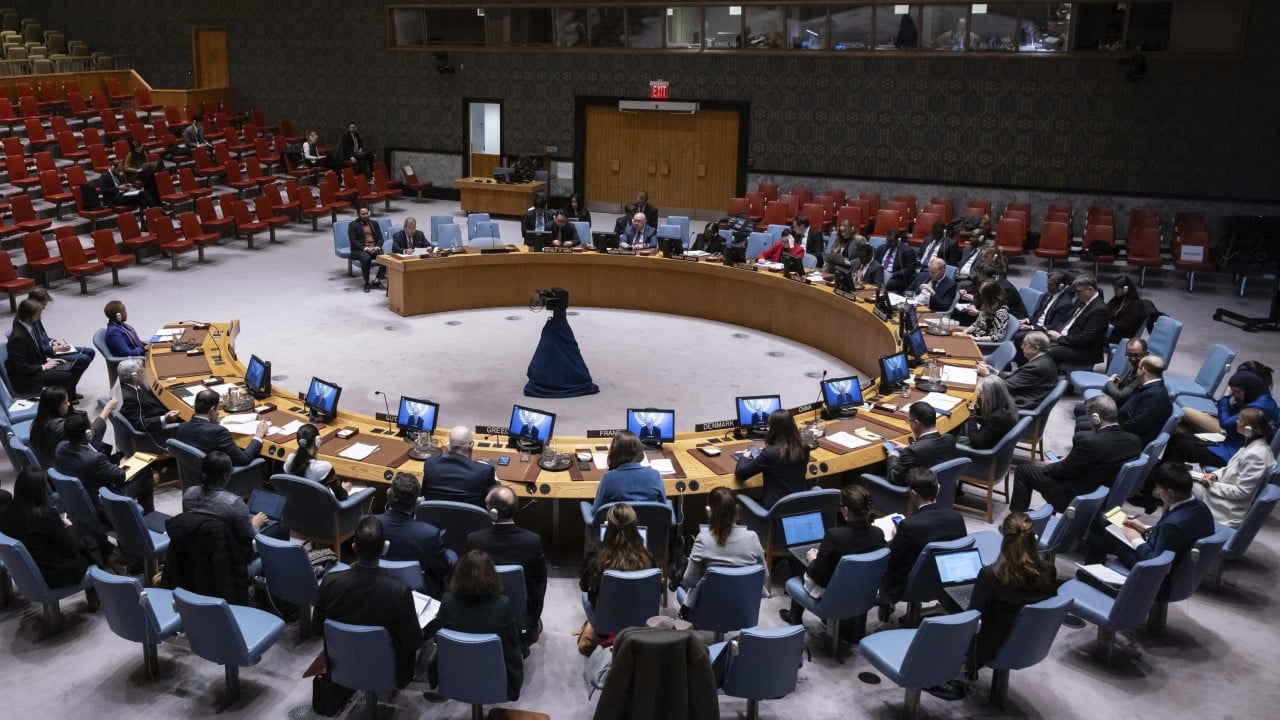A seat on the UN Security Council would give the Philippines its highest-profile platform yet to confront Beijing over its expansive claims in the South China Sea.
Advertisement
But as President Ferdinand Marcos Jnr courts global support in his bid to become a non-permanent member, the question remains: can Manila outmanoeuvre China on the world stage?
“We need to further strengthen multilateralism efforts that will reform the Security Council and revitalise the general sentiment,” Marcos Jnr said last weekend during a toast at the “vin d’honneur”, a formal gathering at the presidential palace attended by diplomats, including China’s ambassador.
The president’s appeal, which stressed the importance of a “rules-based international order”, asserted his administration’s determination to assert its place in global diplomacy. He pointed to the Philippines’ “rich experience” in peacekeeping, consensus-building, and fostering cooperation as the foundation for its candidacy for the 2027–28 Security Council term.
“With a long history and a credible record of multilateral diplomacy,” he said, “the Philippines is in a very strong position to take on more leadership roles that seek to advocate on consequential issues in the global agenda.”
Advertisement
But while Marcos Jnr paints a picture of high-minded diplomacy, analysts say his campaign carries clear strategic intent: leveraging the Security Council seat to corner Beijing.

